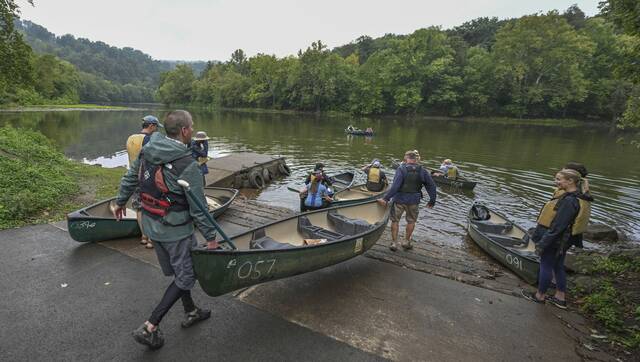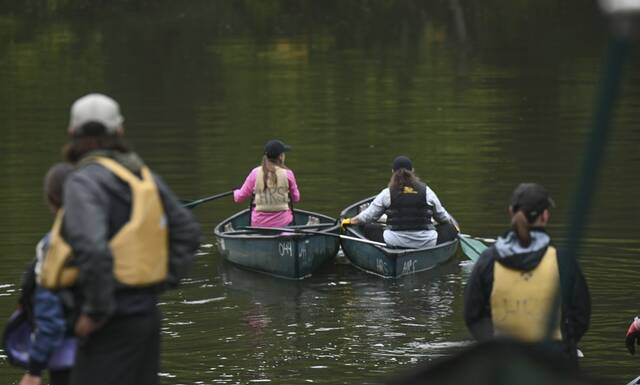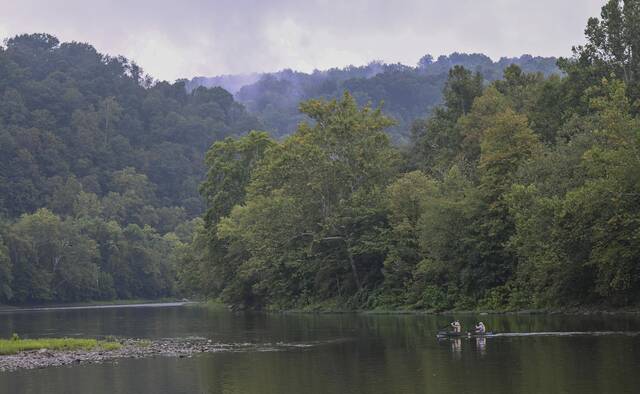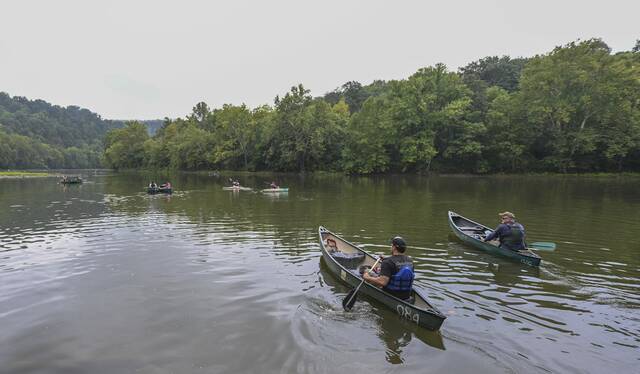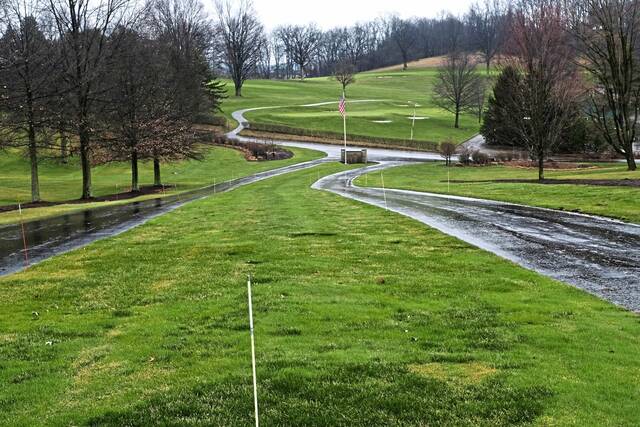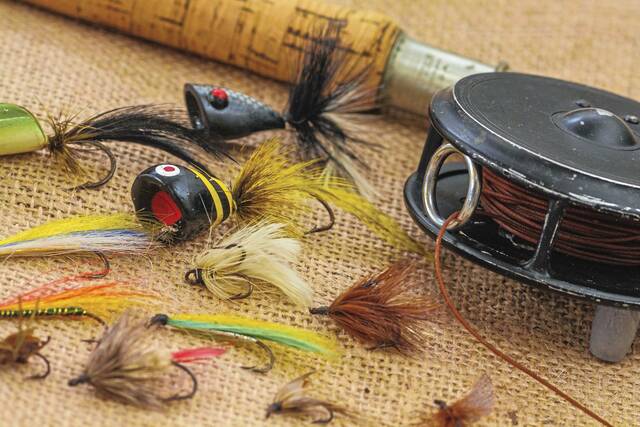Digging rotting tires out of the mud might sound like a strange idea of fun, but it’s one shared by the 20-some volunteers who helped clean up the Youghiogheny River on Saturday morning.
“You get a little exercise and you get to do something cool,” said Lindsay Forney, 39, of Pittsburgh’s Squirrel Hill neighborhood before launching her canoe from Cedar Creek Park in Rostraver.
The group pulled into a West Newton boat launch a few hours later with around 200 tires — all from just a 4-mile stretch.
Since 2019, the Mountain Watershed Association’s semiannual cleanups have removed nearly 3,000 discarded tires from the river and its banks between the park and West Newton, according to Eric Harder, the group’s riverkeeper.
He estimates there are thousands more past West Newton, toward Sutersville. They look like “little doughnuts dotting the riverbed,” he said.
The organization has worked to preserve and restore the Youghiogheny River watershed for more than 30 years. Part of that is cleaning out debris and, especially, tires, which leach contaminants like aluminum and copper into the water.
A chemical that improves the durability of tires called 6PPD is of particular concern. The chemical transforms when exposed to air and becomes toxic to some fish.
It has been under scrutiny since at least 2020, the year researchers in Washington linked decimated coho salmon populations to the presence of the 6PPD byproduct in freshwater streams.
Two years later, a study out of the University of Saskatchewan in Canada found coho salmon’s relative in Southwestern Pennsylvania, brook trout, are also vulnerable to the chemical.
“In our region, this substance hasn’t really been monitored much,” Harder said.
It’s time, he added, “to start talking about this contaminant as a potential threat to our wildlife in our area.”
Removing the tires is dirty work.
Some are buried so deep in sediment they take three or four people to pull out, according to Jace Marsh, 28, of Brentwood, who used to work for the watershed association and joined the cleanup Saturday.
A typical car tire weighs around 20 pounds on its own.
Lugging them back is another challenge. Organizers have found tying two canoes together helps with stability and allows for around 15 tires to be transported in one trip.
Some of the tires are at least 50 years old, according to Harder.
“I think back in the day, there were scrap yards, salvage yards, tire shops that would line the back of their property with them and floodwater would come and take them away,” Harder said. “So now we have thousands of tires scattered from Connellsville to McKeesport.”
Hauling fees for tires, which are illegal to send to landfills in Pennsylvania, might also lead some people to dump them in waterways to save a few bucks.
The watershed association is splitting the disposal costs with Westmoreland Cleanways and Recycling, a group that sponsors programs to properly handle waste.
Harder said his group has no plans to stop the initiative. The volunteers seem just as intent to keep the cleanups going, which take place in the spring and fall.
“I love the Yough,” said Maureen Geurin, 53, of Mt. Pleasant, who has participated in the cleanup multiple times. “It’s very invigorating.”


